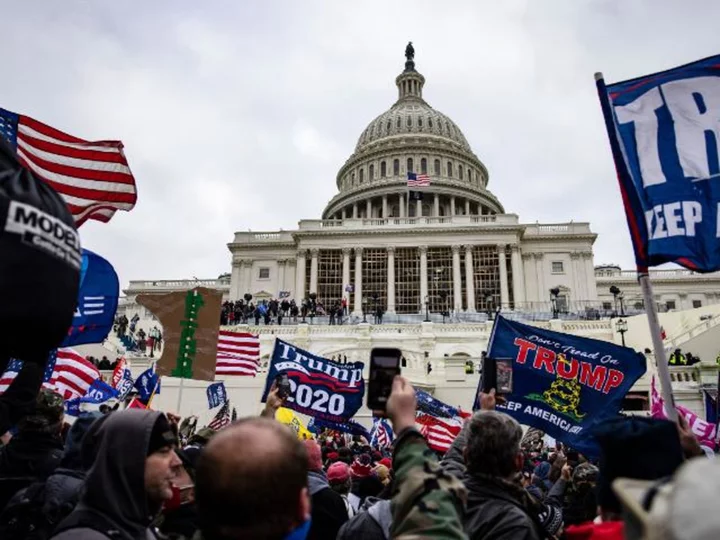A federal appeals court has upheld the Justice Department's ability to prosecute January 6, 2021, rioters with an obstruction charge, in a new opinion that is likely to bolster prosecutors' criminal case against former President Donald Trump on the same charge.
The decision, issued Friday, means prosecutors can use the law that criminalizes obstructing an official proceeding as they seek to bring to justice rioters who disrupted the congressional certification of the 2020 presidential election.
The three-judge panel of the DC Circuit Court of Appeals split 2-1 in the decision.
Trump is scheduled to go to trial in his federal election subversion case in March. His attorneys are arguing to have the case against him dismissed.
The appeals court ruled in the case of Thomas Robertson, a former police sergeant from southern Virginia who was convicted for taking part in the US Capitol riot. Robertson had asked the courts to examine the use of the obstruction law in relation to the riot.
Robertson went into the Capitol after then-President Trump's speech on the Ellipse, and he hit a police officer with a stick. Robertson was later found guilty of obstruction.
The mob violence at the Capitol complex prompted Congress to evacuate the House and Senate chambers, pausing their certification of Joe Biden's Electoral College win -- a development that is a key factor of the DOJ's obstruction cases against rioters.
Robertson argued in court that he shouldn't face the obstruction charge because he hadn't been acting corruptly, as the law requires. He also argued the law was too vague and was unconstitutional.
But the Friday ruling solidifies that his conviction and others like it can stand. In Robertson's case, the court found he had broken the law in multiple ways, making it clear he acted corruptly.
"Where a defendant acts feloniously to obstruct a proceeding before the Congress, with no evidence or argument that he was merely engaged in peaceful expression, his culpability -- i.e., the 'corruptness' of his actions -- is not difficult to discern," Judge Florence Pan of the DC Circuit wrote in the opinion.
Judge Nina Pillard agreed with the decision, while Judge Karen Henderson dissented.
Trump is separately charged under the same obstruction law and has pleaded not guilty. Trump is not personally accused of violence, as many rioters like Robertson were, and instead is accused of exploiting the Capitol riot as to derail the presidential transfer of power.

